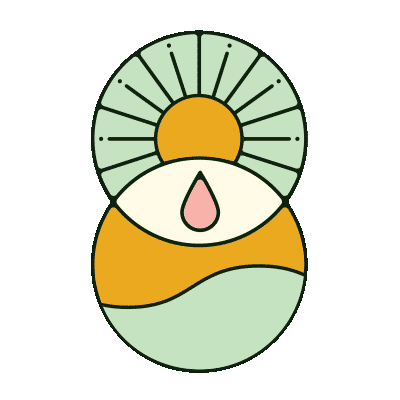Illustrated by Erin Rommel
Photography by Katie McCurdy
It’s unlikely for your period to stay exactly the same from menarche to menopause, and both internal and external factors can dictate the length, regularity, flow and pain level of your period.
There are many factors that impact the menstrual cycle. Things like genetics, stress and nutrition can affect your period, and so can your age.
We think of periods as your fifth vital sign: one of your body’s ways of telling you if everything is under control. Learning how age can impact your period, and how your cycle can vary throughout the years, means not being blind-sighted by your own body.
Naturally, every person’s body and cycle is different—so take the following with a pinch of salt!

In your teens
The average age of menarche is 12, but it’s possible to get your period earlier or later. The first few years, your body is adjusting to the novel hormonal fluctuations (hello, puberty), so it’s completely normal for your period to be… all over the place.
In your teens, it’s common for periods to be unpredictable, both in terms of length and flow.
In your 20s
By the time you reach your 20s, your cycle should have gotten its sh*t together. Since a woman is most fertile in her 20s, this usually means your period will be more regular (it’s your body’s way of preparing for a possible pregnancy).
But even though your body might be ready for a baby, life can get in the way. Whether it’s because of hormonal contraception or a stressful job, your period might still be a little volatile. In fact, it’s not uncommon for stress to cause you to skip one of two cycles—stress can have a significant impact on your body, and a missed or delayed period is a sign that you need to take things slow.
Conditions like endometriosis and PCOS can also be a reason for irregular or painful periods. Although they’re not age-dependent conditions, they’re commonly diagnosed in your 20s—most likely because they can take a frustratingly long time to diagnose.
In your 30s
In your 30s, your cycle should be fairly predictable, but there are a few things that can get in the way.
You can expect fairly regular periods at this age, but one big life event might screw up that regularity: pregnancy. Your period goes MIA while you’re pregnant and breastfeeding, and it might take a while for it to get back to its natural rhythm as your body adjusts from the hormonal roller coaster that happens when you have a baby.
Your 30s are also the decade where other health conditions tend to pop up. It’s very common for women in their 30s to develop uterine fibroids, benign growths that can cause heavy and irregular bleeding.
And much like in your 30s, stress is another big factor. Progressing in your career, planning a wedding (if that’s your kind of thing), and generally just #adulting can have a big impact on how regular your periods are.
In your 40s and beyond
For many women, your 40s mark the beginning of menopause, known as perimenopause (although this can happen in your 30s and 50s as well). As fertility starts to decline and your body starts producing less oestrogen, your body preps for the menstrual finish line.
Your cycle ends like it begins—irregular and unpredictable. If you suffered from bad PMS or heavy periods in your 20s, you’re also more likely to get worse menopause symptoms (especially the psychological ones).
At this point, ovulation becomes irregular and you start experiencing missed periods, spotting between periods and longer PMS. Symptoms of perimenopause also include hot flashes, mood swings, vaginal dryness and anxiety—these may even start happening before your period is a no-show. Although these are all symptoms tied to menopause, you they can show up before menopause.
Menopause is officially diagnosed when, along with all these symptoms, you also miss your period for 12 months in a row.






